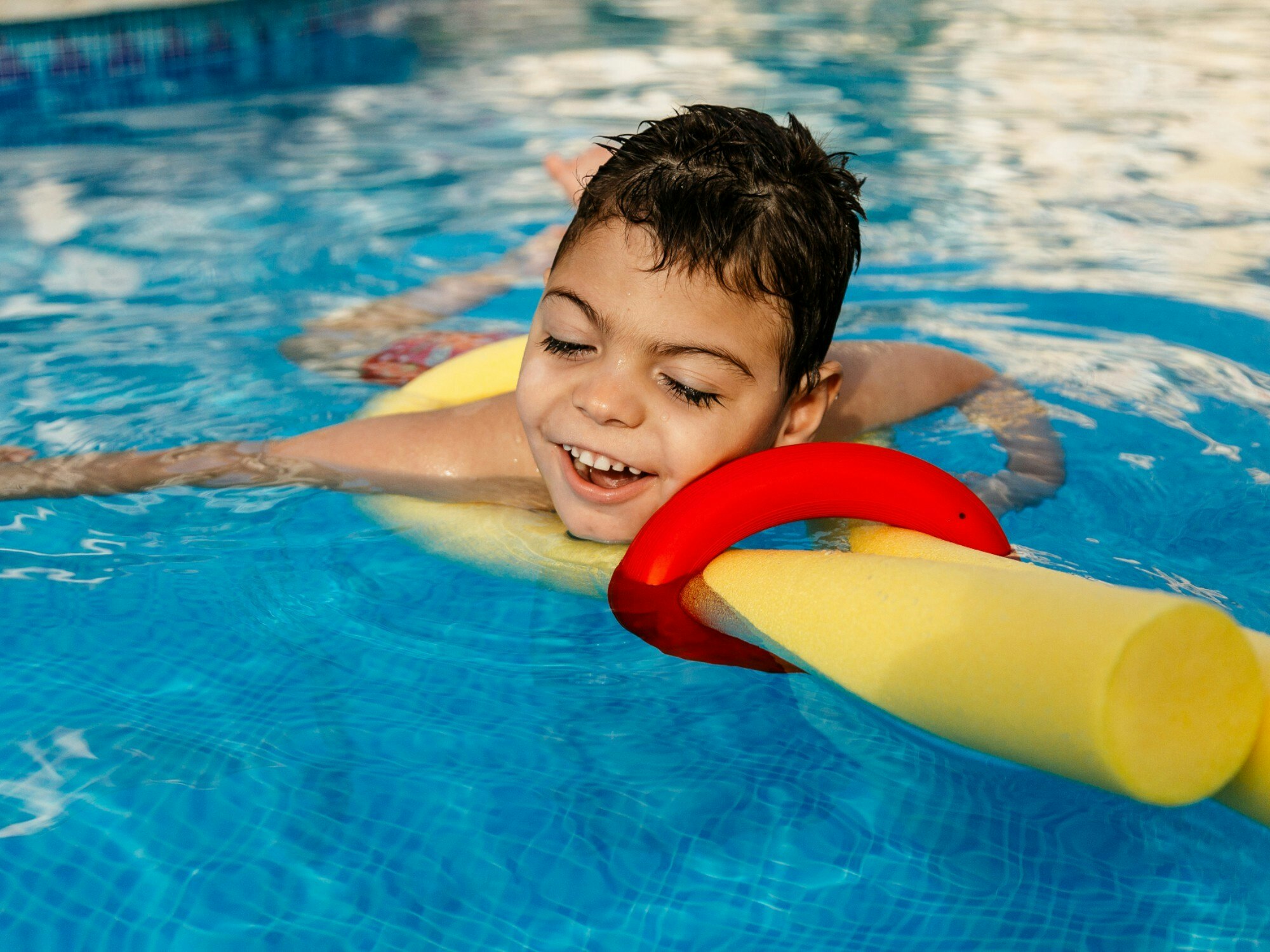Benefits of hydrotherapy for people with disability

Hydrotherapy could be an integral part of the supports which help you to stay healthy and happy if you live with any disability – ranging from physical disability right through to cognitive.
Key points
-
Hydrotherapy can offer a host of benefits for people with disability
-
The focus is on building strength and skills and it can improve physical and mental health
-
It can be used by people of almost any ability
Hydrotherapy involves doing exercises in a swimming pool which are tailored to your individual needs, and tend to be slower and softer than regular swimming.
This is because the pool is heated to a higher temperature and the focus is on building strength and skills, not necessarily stamina or fitness.
The therapy is usually provided by a physiotherapist or exercise physiologist and depending on your needs you may have individual or group sessions.
It is suitable for children of a young age right through to older adults as all exercises are fitted to the individual.
What is hydrotherapy good for?
Hydrotherapy is a way of exercising which is less stressful for joints, bones and muscles as in the water your body is buoyant and you don’t have to support your own weight.
The pool is also set to a warm temperature of around 32-34 degrees to increase your circulation, relax your muscles and decrease swelling, help with muscle spasms, and reduce or remove pain, including arthritis pain.
This means hydrotherapy can be ideal for people with disability who have limited mobility or movement in parts of their body, or who have undergone surgery and need rehabilitation.
It is often used by people with cerebral palsy, for its ability to improve muscle strength with freedom of movement, but it is not limited to use by people with specific conditions.
Benefits of hydrotherapy include:
-
Building gross motor skills such as strength, balance and coordination
-
Building fine motor skills such as grip, hand and finger strength
-
Improving range of motion in joints
-
Increasing aerobic capacity
-
Exercising without pain or restricted movement
-
Working on communication skills including following instructions and expressing emotions
-
Improving posture
Non-physical benefits
Using hydrotherapy sessions can also help to build skills which are not related to your physical ability.
In particular, hydrotherapy exercises can develop your confidence in your own abilities.
Attending the sessions, especially if they are group sessions or held in a pool which other members of the community are using, can boost social inclusion, independence and confidence in accessing the local community.
If your disability affects your movement in everyday life, exercising in water can feel liberating, improve your mood and overall wellbeing and increase your quality of life.
Other points to think about
You should seek a clearance from a medical practitioner as well as discussing any medical conditions or concerns with the physiotherapist before you start, in case your condition could affect your safety while in the pool or affect the types of exercises which you need to do.
For example, an allergy to chlorine, diabetes, epilepsy and cardiovascular disease could impact your ability to do hydrotherapy.
Keep in mind you will need to do these sessions in a pool which is accessible to you.
If you use a wheelchair the pool may need a hoist or water wheelchair to get into the water and if you have other mobility restrictions you might need to enter the pool using a ramp with handrails.
In some pools the depth of the water might also be varied to make it accessible.
There will likely be entry fees to visit the pool for hydrotherapy, as well as fees for the therapy itself, and there may also be equipment fees for flotation devices.
To cover some of the costs you may be able to receive funding through the National Disability Insurance Scheme (NDIS), if you are accessing hydrotherapy for disability-related reasons, or Medicare if your hydrotherapy is for a health condition or post-surgery rehabilitation.
If you are looking for a hydrotherapy service you can search for nearby providers in our online guide.
Have you done hydrotherapy sessions before? Tell us about your experiences in the comments below.
Related content:
Physiotherapists
Feeling weightless in immersion therapy
Staying fit and active with a disability